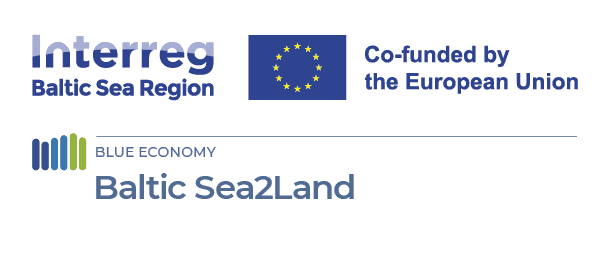
5th Baltic MSP Forum Brings Together Experts to Shape a Resilient and Sustainable MSP and Coastal Planning Future
24 November 2025
On 11–12 November, Riga hosted the 5th Baltic Maritime Spatial Planning (MSP) Forum, which is an important platform for policymakers, planners, scientists and industry experts. The event gathered participants from the Baltic and North Sea regions to jointly seek solutions to pressing challenges – climate change, security, integration of ecosystem services, coastal accessibility, and a sustainable blue economy.
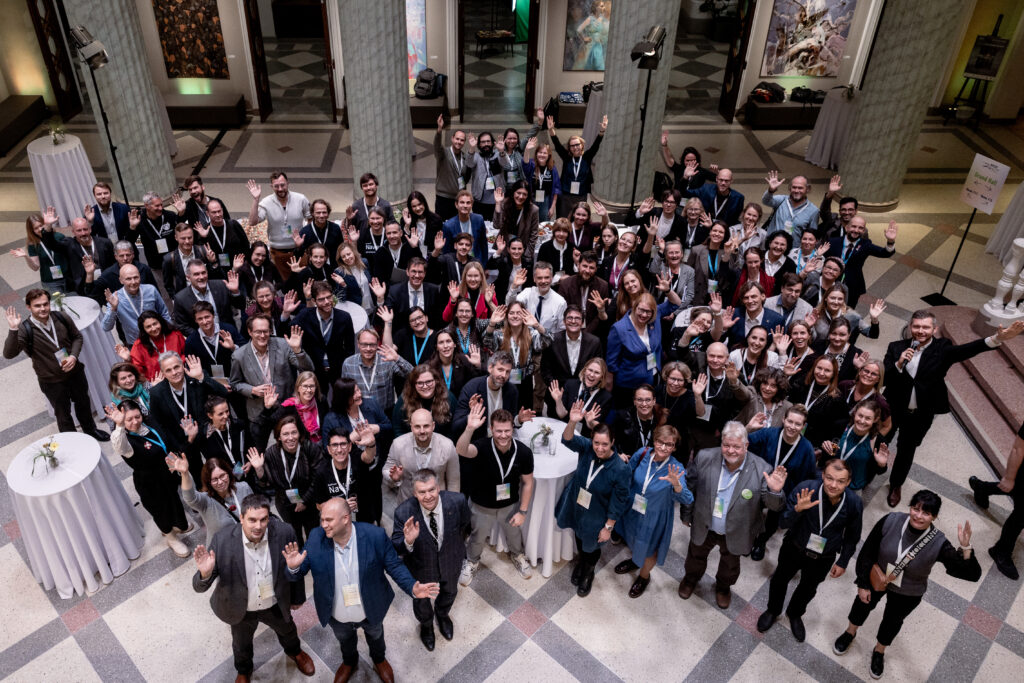
Forum – a place for dialogue and cooperation
Over two days under the slogan “Navigate Planning Through Changes” participants discussed how MSP can become a tool for building a resilient future. The discussions emphasized the need for integrated land-sea planning, balancing ecological, economic, and security interests, and engaging local communities. As the organizers noted: “Strong communities and knowledgeable people make plans actionable.”
The Forum also served as the he closing event of the Baltic Sea2Land project, led by the Ministry of Smart Administration and Regional Development of Latvia.
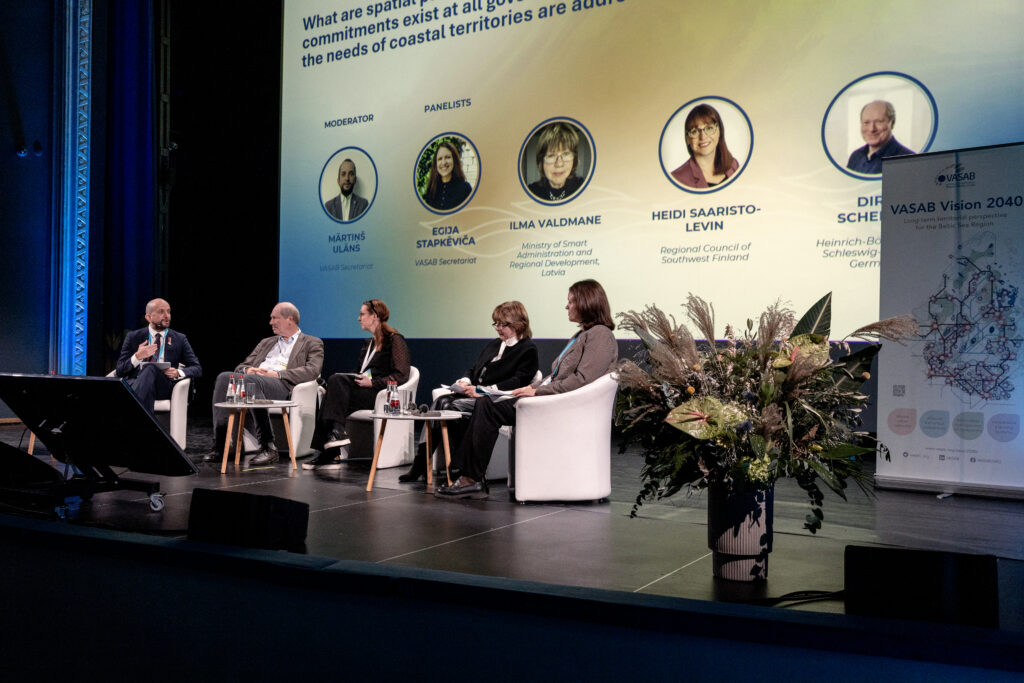
Key takeaways
As stated by Diāna Rasuma, Head of the Spatial Planning and Land Management Department at the Ministry of Latvia:
“The coast should not be a border for planners, but rather place where planners come together.” D. Rasuma also emphasized the importance of local communities: “How can we bring MSP to local communities? We need local leaders. We need instruments how to reach local leaders”.
Nature is the foundation of sustainability and well-being. The future of the Baltic Sea Region depends on cooperation, knowledge, and courage to introduce innovations in planning. Strong communities and skilled experts make plans work. Integrated land-sea planning and collaboration among Baltic institutions are essential. MSP must balance ecological, economic, and security interests.
“In the future coastal accessibility should be considered when making MSP decisions,” pointed out Helen Erik, specialist from Saaremaa Municipality, Estonia and one of the project partners.
Jakub Turski, maritime spatial planning specialist from Gdansk, Poland spoke about trust and cooperation: “We can act in strong ways, but we must trust each other. We must trust specialists with extensive knowledge. Spatial planning specialists have a lot of numbers and data that can cause dissatisfaction among local communities, as the amount of data causes confusion. Bud these data and numbers can make people happy – if they are offered in smart and understandable manner”.
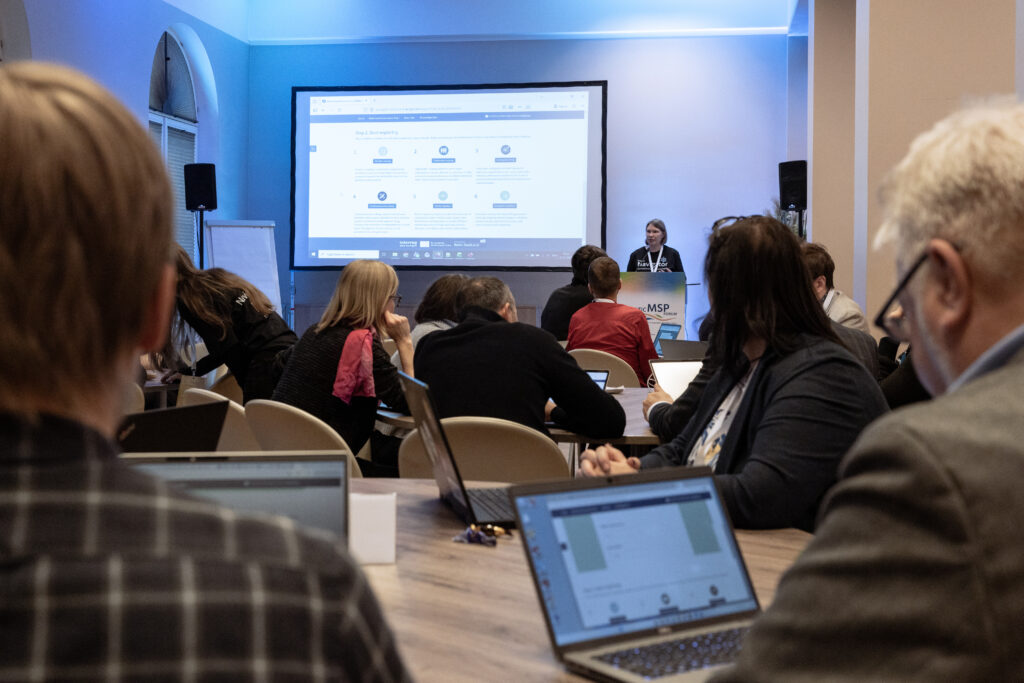
Sea2Land Navigator – simplifying complex planning tasks
At one of the sessions participants were introduced with the Sea2Land Navigator, a tool developed within the Baltic Sea2Land project. This innovative instrument for marine and coastal planning was described by project partners as a true “game changer” for planners and policymakers seeking to improve decision-making. Many participants praised the tool’s potential. As Nick Boxem, Head of the Marine Policy Directorate of the Netherlands Government, stated:
“I am impressed about the Sea2Land Navigator system.
The Sea2Land Navigator is designed to make maritime and coastal planning more efficient and user-friendly. Planners often face the challenge of working with vast amounts of data and diverse information sources, which can be time-consuming and overwhelming. The Navigator acts as a smart compass, helping users organize, interpret, and apply this data effectively. By providing clear guidance and integrated insights, it reduces complexity, supports evidence-based decisions, and saves valuable time – turning a complex process into a manageable and structured workflow.
The Navigator development team’s answer to several questions from the audience about maritime spatial planning was simple – “Use the Navigator!”
Although the Baltic Sea2Land project is finalising, the Sea2Land Navigator will continue to be refined and applied in other MSP-related projects, for example Interreg BSR Platforms Baltic PlaNet and SEABAS.
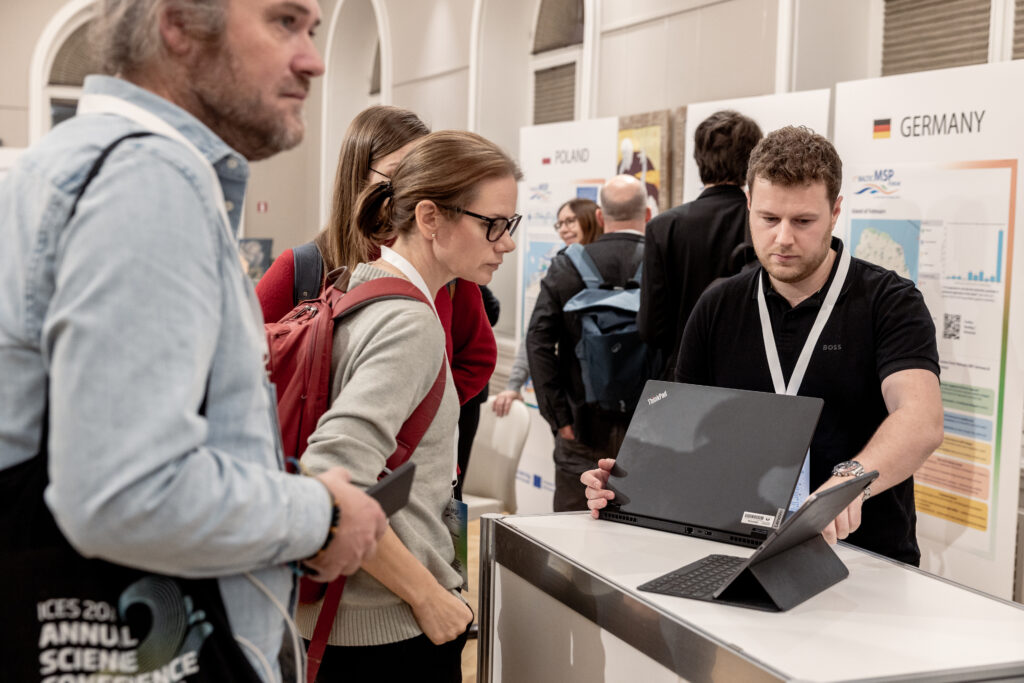
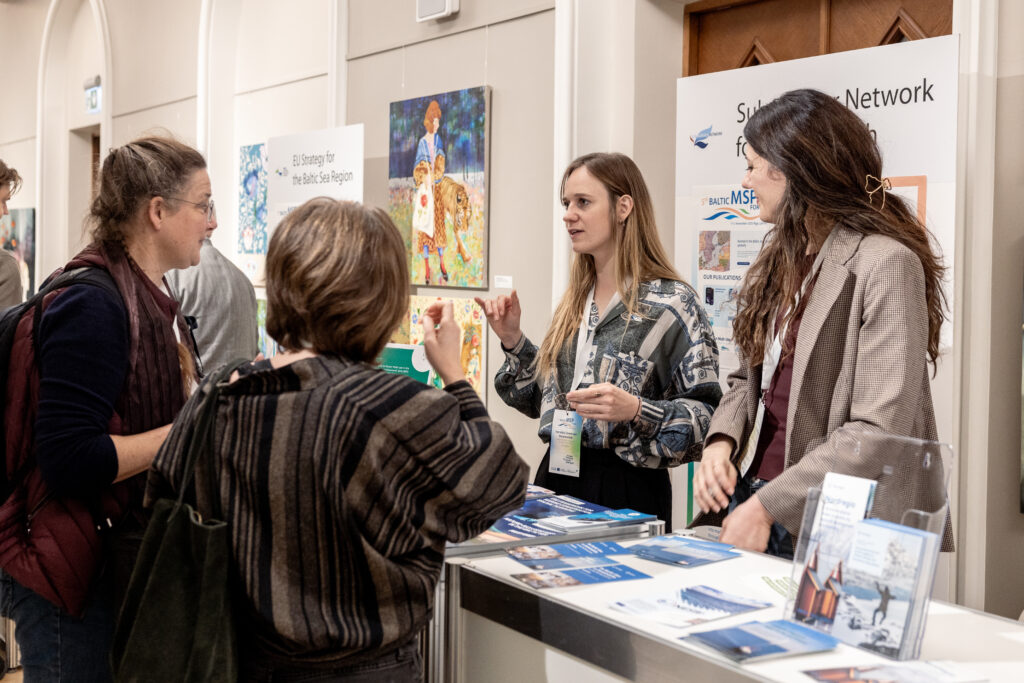
Insights from the sessions
- Resilient and Liveable Coastal Communities – Local communities must have sufficient capacity and a clear vision of priorities. Planners should engage strong communities to achieve the best results. Policy level must ensure mechanisms to support local leaders.
- Integrating Ecosystem Services into MSP – Ecosystem services reveal the benefits of biodiversity and nature conservation and provide a basis for evidence-based decision-making. Next step: transition from qualitative mapping to quantitative process analysis.
- Addressing Climate Change Impacts in Coastal Municipalities – A long-term perspective, multi-level approach, and preparedness are essential. Well-planned actions are more effective than corrective measures. Knowledge is the key pillar of planning.
- Integrating Blue-Green Infrastructure into MSP – Ecological connectivity is crucial for ecosystem service delivery. Cross-border cooperation needs to be strengthened.
- Coastal Accessibility and Smart Solutions – Greater use of GIS, smart parking systems, and public transport is needed.
- Advancing Transboundary Governance in the Baltic and North Seas – Political resources, time, and openness to transnational solutions are required.
- Safety and Security of Supply in the Baltic Sea – The role of sectors in strengthening security is critical. Timely discussion on defense and energy is necessary.
- Multi-Use of Marine Space for a Sustainable Blue Economy – Clear communication on different sea uses is needed, along with urgent creation of economic incentives for multi-use implementation.
Strong local communities, knowledge and data-driven maritime spatial planning are the foundation for a sustainable future for the Baltic Sea region. Similarly, when it comes to innovation, the Sea2Land Navigator tool has shown that innovation and digital tools are becoming essential supports for smart and flexible maritime spatial planning. The forum confirmed that close cooperation between countries, institutions, communities, and experts can ensure the sustainable development of the Baltic Sea region.
Session recordings can be found here: https://www.youtube.com/watch?v=hRzDirmg01U&list=PLJ_SMXI-ifK4hMkMjFsuge0wGfX8D3t1F
Presentations from the Forum: https://vasab.org/5th-baltic-msp-forum/files/
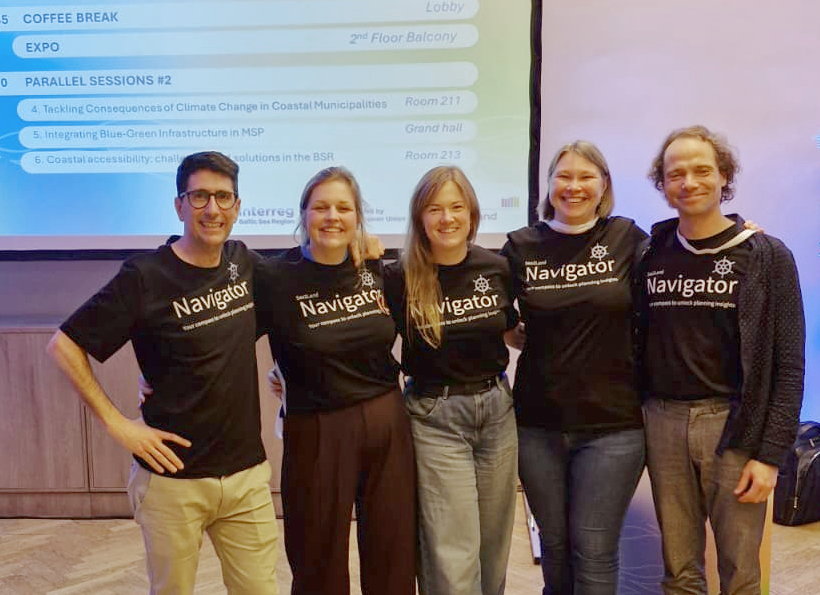
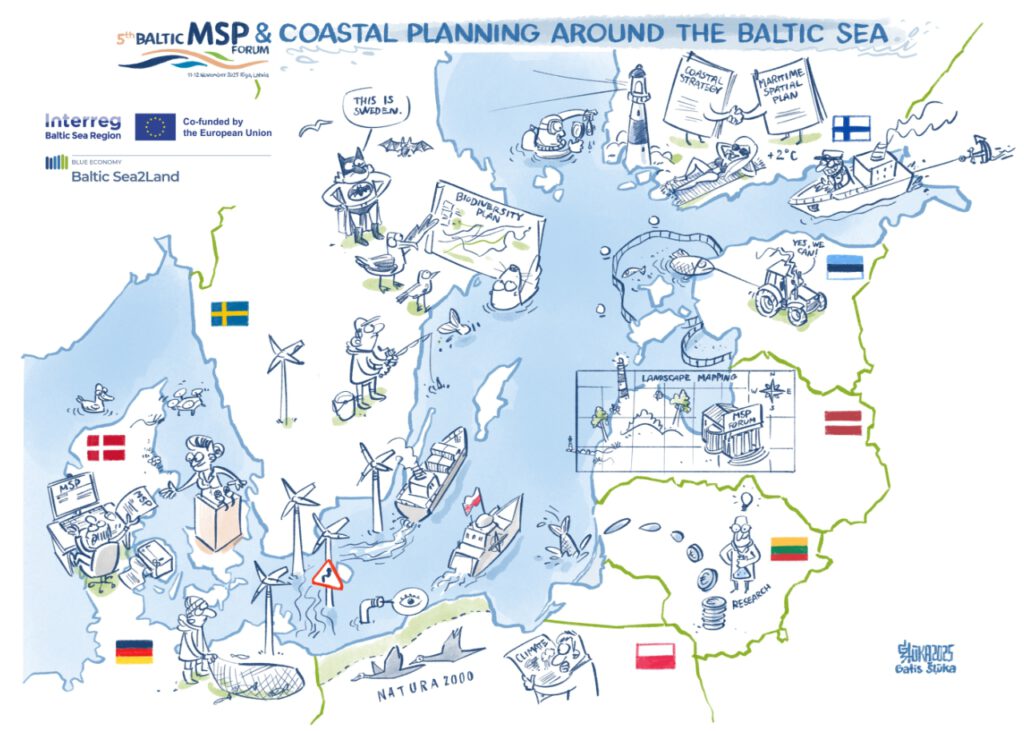
More photos from the event: https://interreg-baltic.eu/project/balticsea2land/#collections-0





